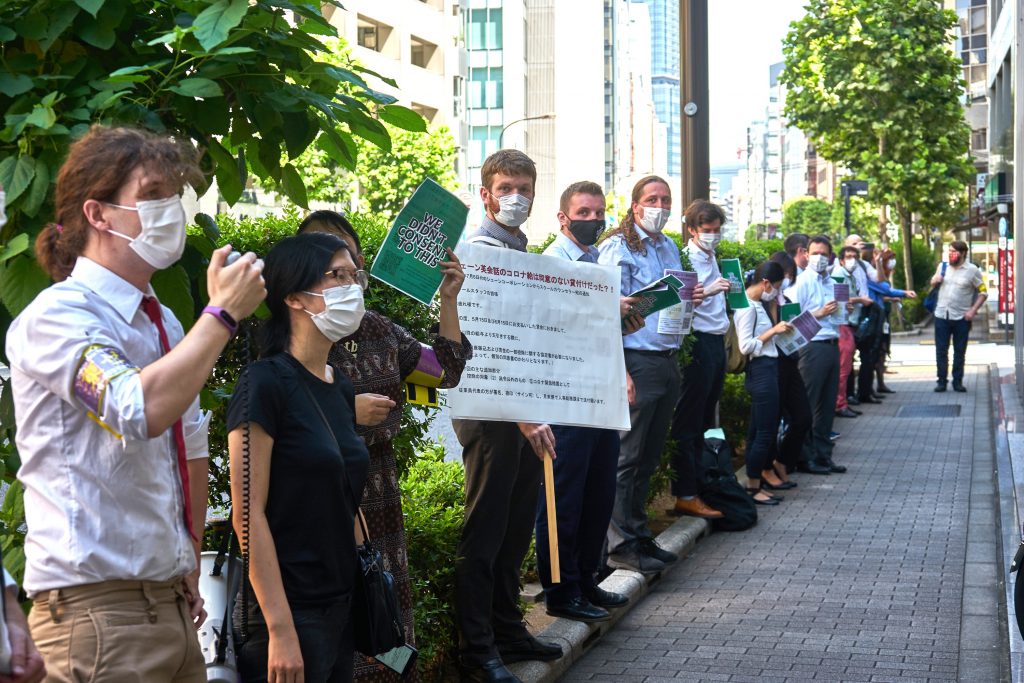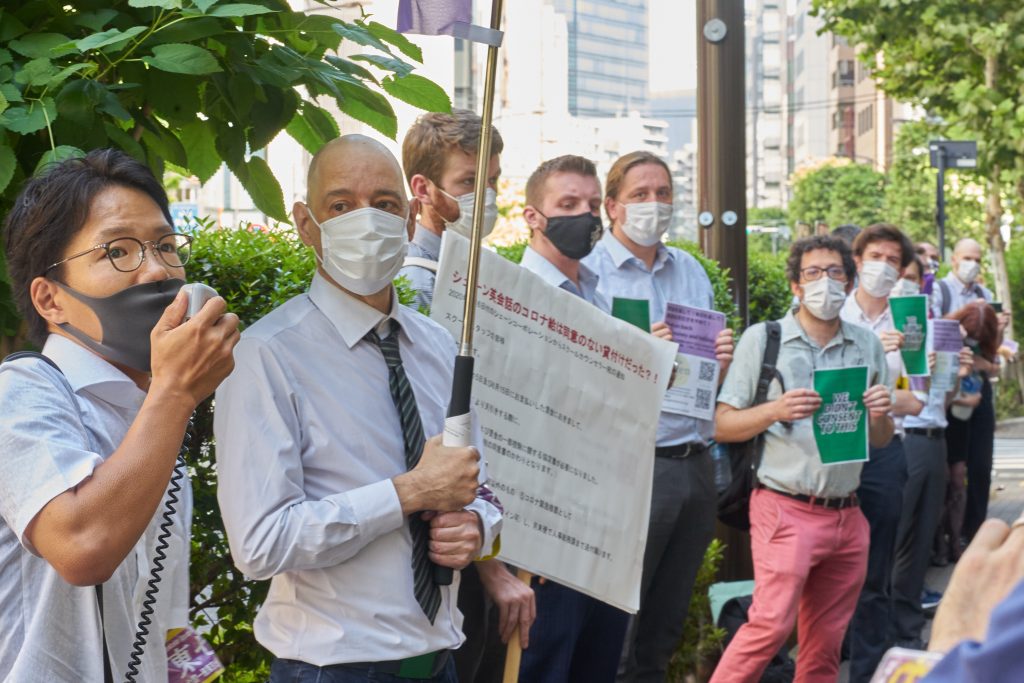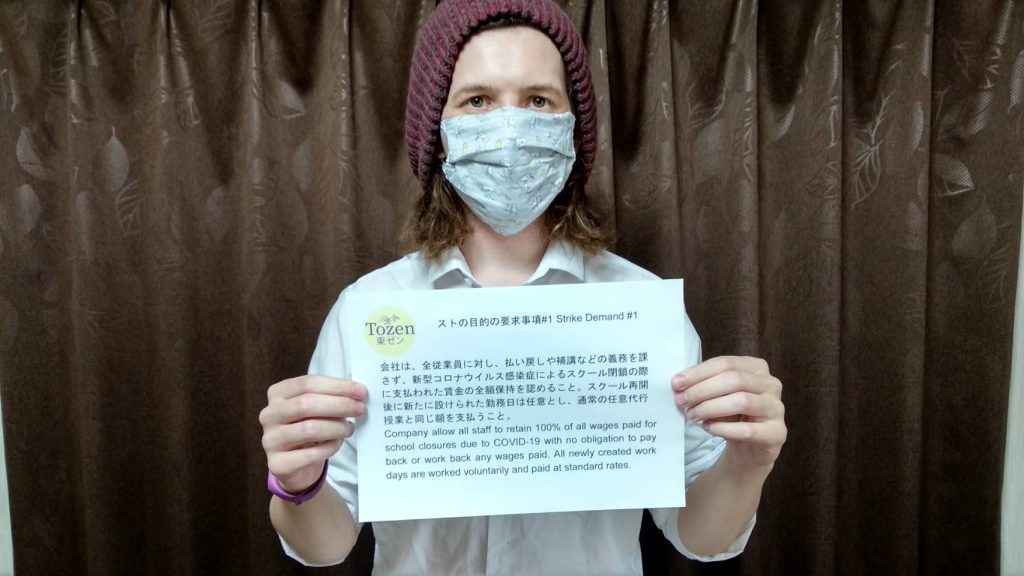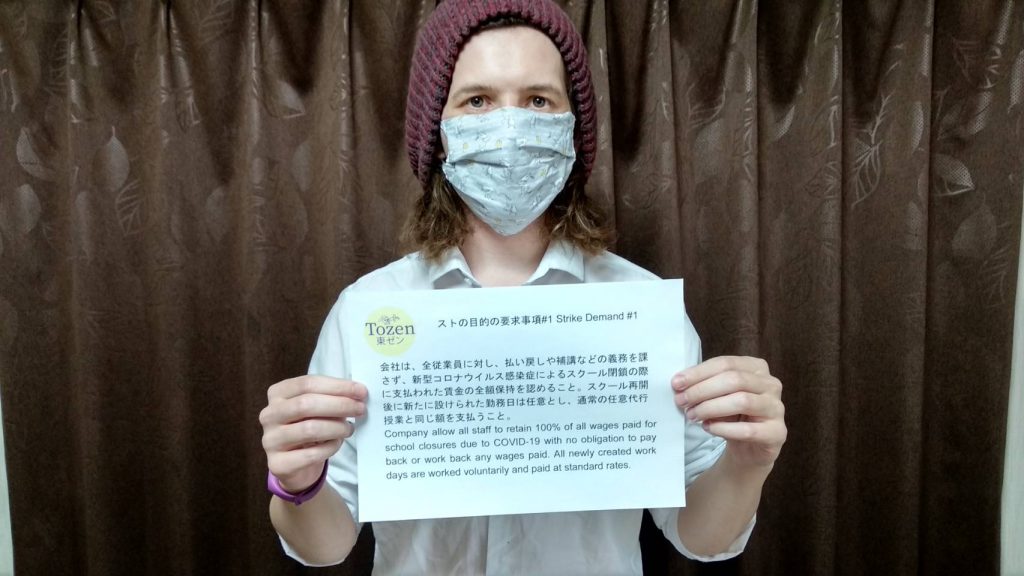On the morning of Friday August 21st a demonstration was held at Shane Corporation Kanda head office where most of management works. Thirty-three members of the Tozen Union gathered in front of the Shane building and protested Shane’s docking of wages and taking away holidays.
During the government lockdown, Shane told employees to stay home and promised to pay 100% of their salary. Memos sent to staff contained lofty rhetoric, such as, “Your integral importance in day to day operations at Shane cannot be overstated and we want to financially protect you during this very testing and challenging time.”
Weeks after the company resumed operations new memos were sent stating that most holidays would be taken away, and employees would have to provide free labor, working 6 days a week to “make up” for the days “missed” during the lockdown. Neither staff nor the union was consulted. Staffers were also told that the already paid salary was now a surprise loan to be paid back should they choose not to provide free labor.
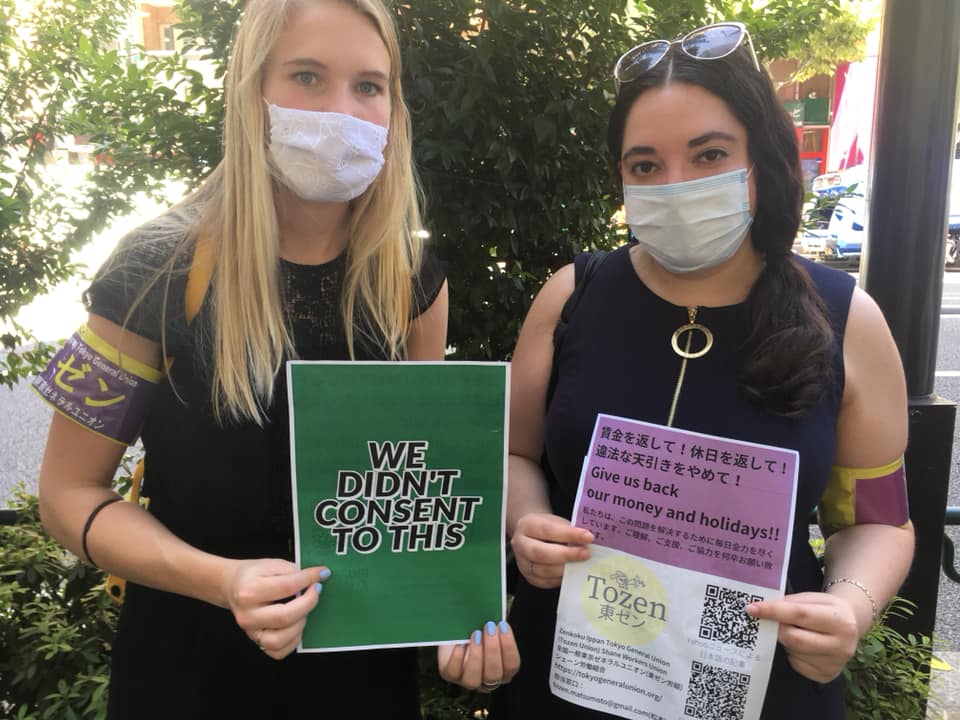
Recently, Shane Workers Union membership tripled in size. Members include both foreign and Japanese staff. The company plans to dock instructor wages starting with the September paycheck. Salary deductions for Japanese staff have already begun. Twenty-nine teachers went on strike in solidarity.
At the protest, Shane employees were joined by members of allied unions: Posse, General Support Union, and other Tozen Union local chapters such as Oberlin Local, Begunto (Berlitz) and ALT local. Shane Corp. continues to refuse to hold in-person collective bargaining with the union. We hope to change this quickly and reach an agreement on union demands with Shane management.
The members of Shane Workers Union and many of the staff employees never consented to giving up their holidays, providing free labor or taking out any loans.
Orren Frankham, executive president of the Shane Workers Union, shouted through a megaphone at the protest: “You are taking our holidays; you are affecting the workers; you are making it harder for everybody! We call on you to negotiate with us! Negotiate with us! We have called on you multiple times for CB and you have ignored us!”
By: Veronika Danovich (member of Tozen Union)

